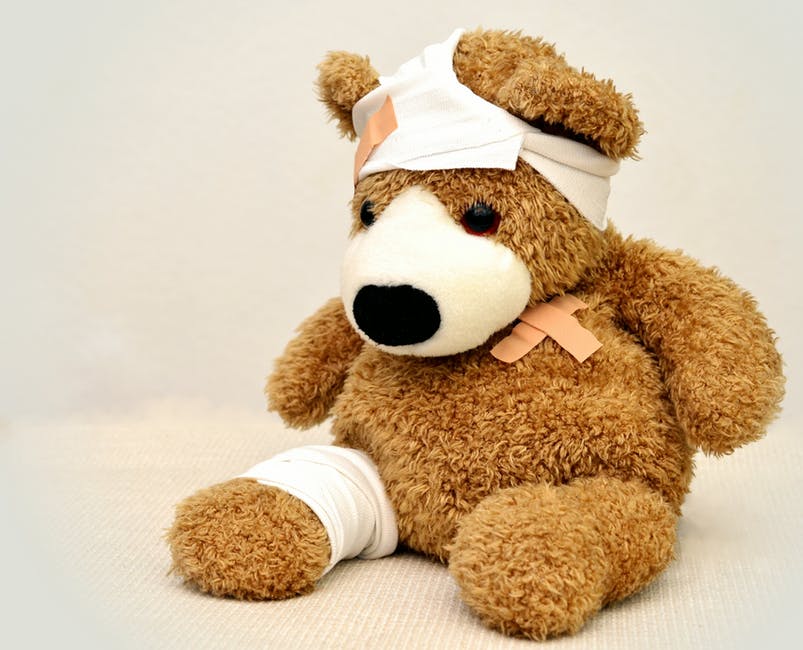
One of my favorite types of speeches to give is the process speech. You know what I’m talking about: its when you have a step-by-step way of doing things that you want to share with your audience. When we give these types of speeches, it almost seems as though the speech writes itself. We start at the beginning and then all we have to do is to follow each of the steps until we reach the end. Let’s use a 9-step plan for what to do after a car crash as an example of how we can go about doing this.
You rely on your car every day to get from home to work, school, stores, and social events. While you’re safe on the road most of the time, accidents can and will happen.
In fact, each year, more than 3 million people get injured in car accidents. It’s frustrating enough dealing with insurance claims for damage to the car. But when you’re also coping with a car accident injury, the process gets even harder.
Here are a few simple steps to take to make the claims process easier and help you get the settlement you deserve.
1. Stop and Call the Police
The first thing you need to do in an accident, whether minor or severe, is to stop and call the police. If you’re able to, move the car out of traffic, but if you’re not, call the police immediately.
They’ll be able to help you deal with the other driver and can make sure you’re safe from nearby traffic while statements get collected. They’ll also document your medical condition if you’re injured.
You can use their report of the accident to help with your insurance claim.
2. Exchange Information with the Other Driver
The police will collect information from both you and the other driver involved. But you may also want to exchange information with them before you leave the scene.
Ask for their full name, address, phone number, insurance provider, and insurance policy number. Also make sure to take down the make, model, and color of their car as well as their license plate number.
This information will help you during the claims process.
3. Get Medical Attention for Your Car Accident Injury
If you or your passengers are severely injured, call 911 immediately after the accident. But if you’re not sure you’re injured or your injuries are minor, go to the doctor as soon as you can.
Remember, it can take a few days for injuries to show up and just because you’re feeling okay immediately after the accident doesn’t mean you’re not injured. When in doubt, go to the doctor and get checked out.
If they find anything, document the injuries and inform the insurance company of them when you file the claim.
4. Take Pictures and Document the Damage
Document both the damage to the car and any visible injuries you received from the accident. Cell phone pictures are fine.
You can also use the police report to document the damage done by the accident. Ask the police for a copy of the report and submit it to the insurance company with your claim.
If you’re injured, give the insurance company your doctor’s information and tell your doctor that they may need to explain your injuries to the insurance company.
5. Speak with Your Insurance Company
Notify your insurance company as soon as possible. If you have medical coverage as part of your insurance policy, you’ll want to file a claim to help pay for the costs of your injuries.
Filing a claim for medical coverage shouldn’t increase your premiums. Once you reach the limit of your insurance coverage, your health insurance will kick in to cover the remaining costs. If you’re not at-fault for the accident, you can push to get the other driver’s insurance company to pay those remaining costs as part of your settlement.
6. Keep Track of All Documents
Do what you can to stay organized throughout the claims process. Create a file of all relevant documents including the police report, any documents sent from the insurance company, and any communication you may have with the other driver.
Losing even a single document puts you at a disadvantage. Remember, you want to get the biggest settlement you can from the insurance company. The more information you have, the easier that will be.
7. Be Cautious When Giving Statements
The insurance provider will ask you for a statement about what happened during the accident. Many insurance companies try to get this statement when you’re shaken up or still recovering from your injuries.
Don’t fall prey to their demands. Give the statement when you’re not on medications that affect your clarity of thought or feel emotionally distressed. This can impact the accuracy of your statement and could hurt your settlement.
Instead, ask to contact them when you’re feeling ready. Remember, you can always speak with an attorney before you give your statement.
8. Be Calm During Negotiations
The insurance company is always going to look out for their clients and their pockets. This means they’ll actively try to negotiate your settlement as low as possible.
In many cases, that negotiation process can drag out the settlement. If you’re like most people, you’ll start to feel impatient and just want to get the experience over with.
Unfortunately, the more impatient you get, the more willing you’ll be to settle for a lower amount than you deserve. If you’re not satisfied with the amount of a settlement they award you, don’t accept it. Fight for what you deserve.
It may take longer, but the last thing you want to do is burden yourself with medical expenses and repair bills that the other driver should pay for.
9. Let an Attorney Help You
You don’t have to go through the claims process alone. In fact, doing so could lead to a lower settlement. Instead, contact an experienced car accident law firm and find a lawyer to represent your interests.
They work for you, not the insurance company and will do everything they can to help you get the best settlement possible.
Final Thoughts
Getting into a car accident is stressful. At best, you have to deal with repairs to your car. But when you’re dealing with a car accident injury, you’ll want to do whatever you can to get as much as you can out of your claim.
Use these tips to help you cover your bases and don’t hesitate to consult an attorney if you feel you need to.

